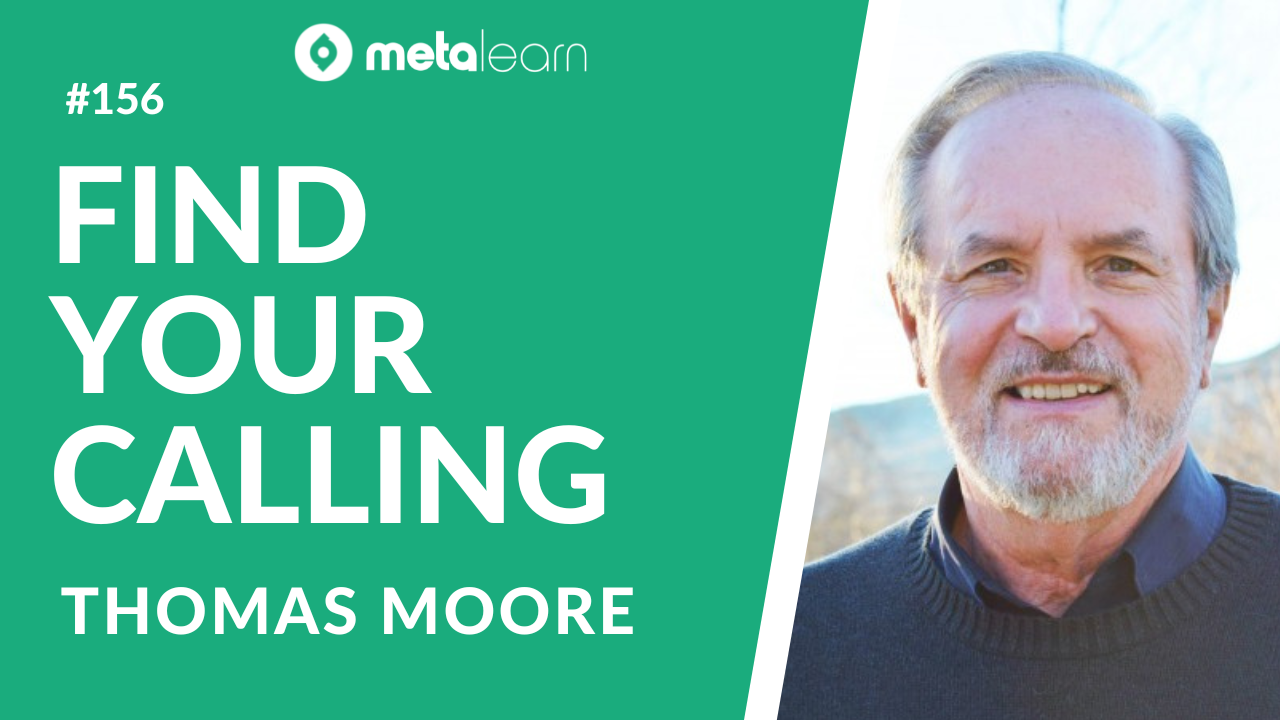ML156: Thomas Moore on Finding your Calling, Doing Your Life's Work and The Difference between Soul & Spirit
Learn more about the concept of calling, how to produce an impressive body of creative work in your career without retiring to a cabin in the woods and the distinction between soul and spirit and why it matters for everyone.

Thomas Moore is a best selling author, international speaker and esteemed psychotherapist. He is best known for the New York Times bestseller Care of the Soul and has written 24 other books about finding meaningful work, bringing soul to personal life and doing religion in a fresh way.
In his youth he was a Catholic monk for 13 years but left the church before becoming ordained as a priest. He is a keen musician, having studied music composition and has a Ph.D. in Religious Studies from Syracuse University. He's worked as a professor for a number of years and is also a psychotherapist influenced mainly by Carl Jung and James Hillman who he worked with closely.
In this episode, Part 1 of our conversation, we discuss:
- The concept of having a calling - specifically when this is naive and when it isn't
- How Thomas has written 25 books in his career without retiring to a cabin in the woods
- The distinction between soul and spirit and why it matters for everyone
As Thomas himself puts it, so many of the problems we experience are not ones of knowledge but of imagination. If we can see things differently, the solutions eventually become apparent –– and I hope this conversation will be as much of a perspective shifter for you as it was for me.
Show Notes
- Introducing Thomas Moore [00:37]
- What was Thomas’ relationship with school and education as a child and eventually as an educator himself? [03:00]
- Joining the seminary at 13 years old, how did Thomas decide that it was the path that he was going to take at such a young age? [04:13]
- What does a monastic life look like? Thomas shares his day to day experience and his early interests living in a seminary. [05:42]
- Thomas was near ordainment when he decided that priesthood was not meant for him. What brought about this significant shift in his calling? What was the mindset change that made him pursue writing and psychotherapy? [08:00]
- How do you know when the concept of calling is naive and when it isn’t? How does it affect our decision-making? [11:28]
- When he left the seminary, Thomas had a certain clarity to his decision. Did he have the same clarity when he pursued religious studies and teaching? [13:20]
- What was Thomas’ response when he was reprimanded for having an experimental approach to teaching? [14:14]
- How does Thomas’ calling manifest in his life and in the decisions he makes? How does he approach the situation when things don’t work out the way he wanted? [16:13]
- What are the problems with the concept of balance? How do we manage multiple callings and passions? [18:51]
- What are Thomas’ motivation and process when writing books? [20:41]
- How does Thomas regard Care of the Soul and its worldwide acclaim since it was published? How has his writing changed and improved? [22:52]
- What is the concept of spirit and how should we think about this idea as we go on with our lives? [25:20]
- What is the concept of the soul and how is it different from spirit? What are the things that constitute one’s soul? [27:54]
- What are images in Thomas’ life that represent the concept of the soul for him? [30:02]
- Is it possible to find soul in a corporation with many employees and business goals in mind? How can a company be soul-centered and why is this important? [32:07]
- Thomas shares his perspective on the myth of Icarus and the consequences of aiming too high. [36:05]
- What does Thomas think of the progression of technology and machines in today’s society? What is the missing piece that can make this advancement more fruitful and meaningful for humans? [38:20]
- What is the solution to a society that neglects human needs and human issues in the way of progress? [39:44]

